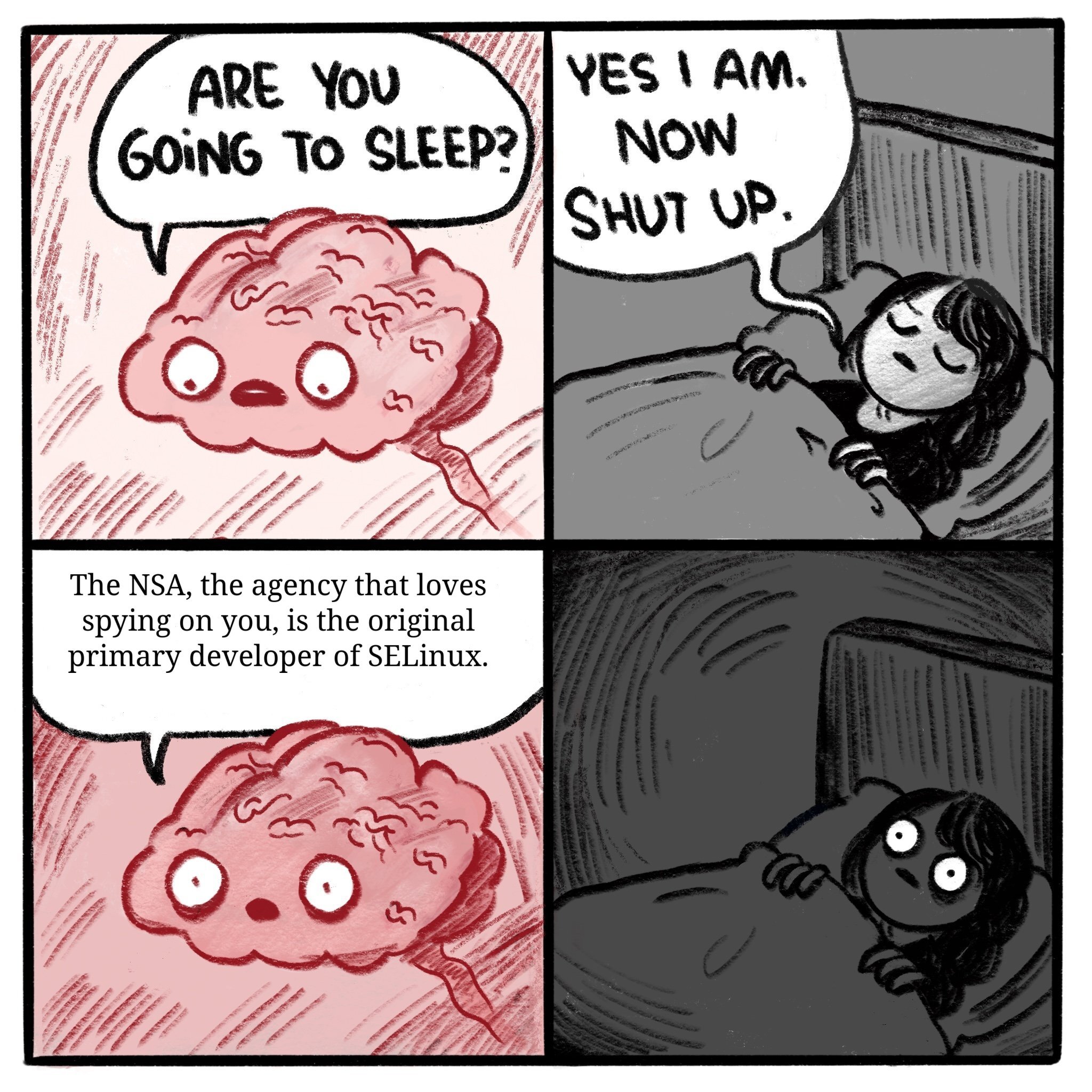this post was submitted on 07 Jan 2025
625 points (96.7% liked)
linuxmemes
22872 readers
617 users here now
Hint: :q!
Sister communities:
Community rules (click to expand)
1. Follow the site-wide rules
- Instance-wide TOS: https://legal.lemmy.world/tos/
- Lemmy code of conduct: https://join-lemmy.org/docs/code_of_conduct.html
2. Be civil
- Understand the difference between a joke and an insult.
- Do not harrass or attack users for any reason. This includes using blanket terms, like "every user of thing".
- Don't get baited into back-and-forth insults. We are not animals.
- Leave remarks of "peasantry" to the PCMR community. If you dislike an OS/service/application, attack the thing you dislike, not the individuals who use it. Some people may not have a choice.
- Bigotry will not be tolerated.
- These rules are somewhat loosened when the subject is a public figure. Still, do not attack their person or incite harrassment.
3. Post Linux-related content
- Including Unix and BSD.
- Non-Linux content is acceptable as long as it makes a reference to Linux. For example, the poorly made mockery of
sudoin Windows. - No porn. Even if you watch it on a Linux machine.
4. No recent reposts
- Everybody uses Arch btw, can't quit Vim, <loves/tolerates/hates> systemd, and wants to interject for a moment. You can stop now.
5. 🇬🇧 Language/язык/Sprache
- This is primarily an English-speaking community. 🇬🇧🇦🇺🇺🇸
- Comments written in other languages are allowed.
- The substance of a post should be comprehensible for people who only speak English.
- Titles and post bodies written in other languages will be allowed, but only as long as the above rule is observed.
Please report posts and comments that break these rules!
Important: never execute code or follow advice that you don't understand or can't verify, especially here. The word of the day is credibility. This is a meme community -- even the most helpful comments might just be shitposts that can damage your system. Be aware, be smart, don't remove France.
founded 2 years ago
MODERATORS
you are viewing a single comment's thread
view the rest of the comments
view the rest of the comments

I haven't looked at the keyboard drivers, or much Linux source. I never really had a reason to do a lot of C other than small microcontroller projects.
But I see this stuff and think of how awesome it must have felt to get a different keyboard working on an OS the first time. I have to do all this stuff with cloud, and api levels, and configuring CI/CD pipelines, and sometimes I get to write backend C# code or they let me play in the front end. Most of the time it's telling another team of developers what to do, and listening to our clients explain the problems and I have to figure out if we already have anything to fulfill at least some of those needs.
These drivers are the divine marriage of hardware that's not native to the machine that an OS is running on. It's so beautiful to read. You can visualize where the values enter a memory address, and bits get shifted or something is static so the keyboard always uses the right thing.